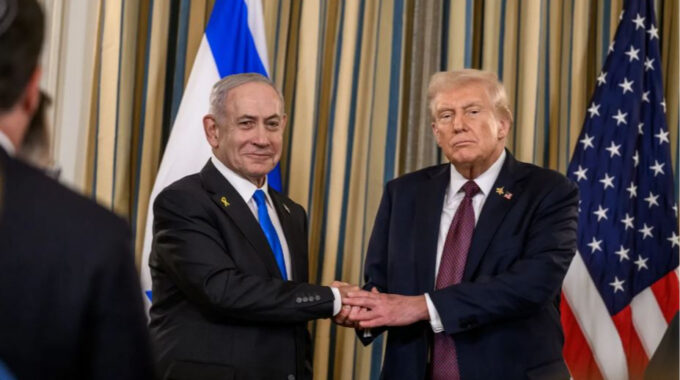Israeli Prime Minister Netanyahu Did Not Agree with Trump on Reinstating Attacks on Hamas, sparking diplomatic tensions

According to reports from sources such as Axios, Israeli Prime Minister Benjamin Netanyahu did not coordinate with U.S.
President Donald Trump before deciding to escalate military strikes against Hamas in the Gaza Strip.
Initially, Netanyahu intended to launch retaliatory attacks following provocative actions, but later changed his stance.
Sources reveal that even before the recent incident in Rafah, Netanyahu was trying to contact Trump, who was touring Asia, to gain his support and approval for military action.
On October 28, Israel sent videos to the White House and CIA, demonstrating that the efforts to find hostage bodies were staged and that Hamas was violating agreements.
In response, U.S.
officials indicated that these videos did not constitute a serious breach of the ceasefire agreement and urged Israel to refrain from radical measures that could jeopardize the peace process.
Following this diplomatic strain, Netanyahu convened an urgent military meeting, but as sources suggest, it ended without clear decisions and focused on the need for U.S.
coordination.
However, events in Rafah appear to have altered his plans.
It seems Netanyahu announced the resumption of airstrikes in Gaza without prior discussion with Trump, motivated by recent clashes initiated by Hamas militants in Rafah.
On the evening of October 28, Netanyahu officially declared Israel would renew strikes after militant activity and shootings from underground tunnels in Rafah.
The area remains under Israeli military control, but Hamas operatives continue under the tunnels.
The militant group applied anti-tank weaponry and snipers opened fire on Israeli forces, leading to air strikes followed by Hamas declaring a temporary halt to the transfer of dead hostages.
The week prior, both Israel and Hamas accused each other of violating previously reached agreements mediated by the U.S.
and regional actors.
U.S.
officials privately expressed concern that Netanyahu might back out of a peace deal, increasing tensions and complicating efforts to stabilize the region.

